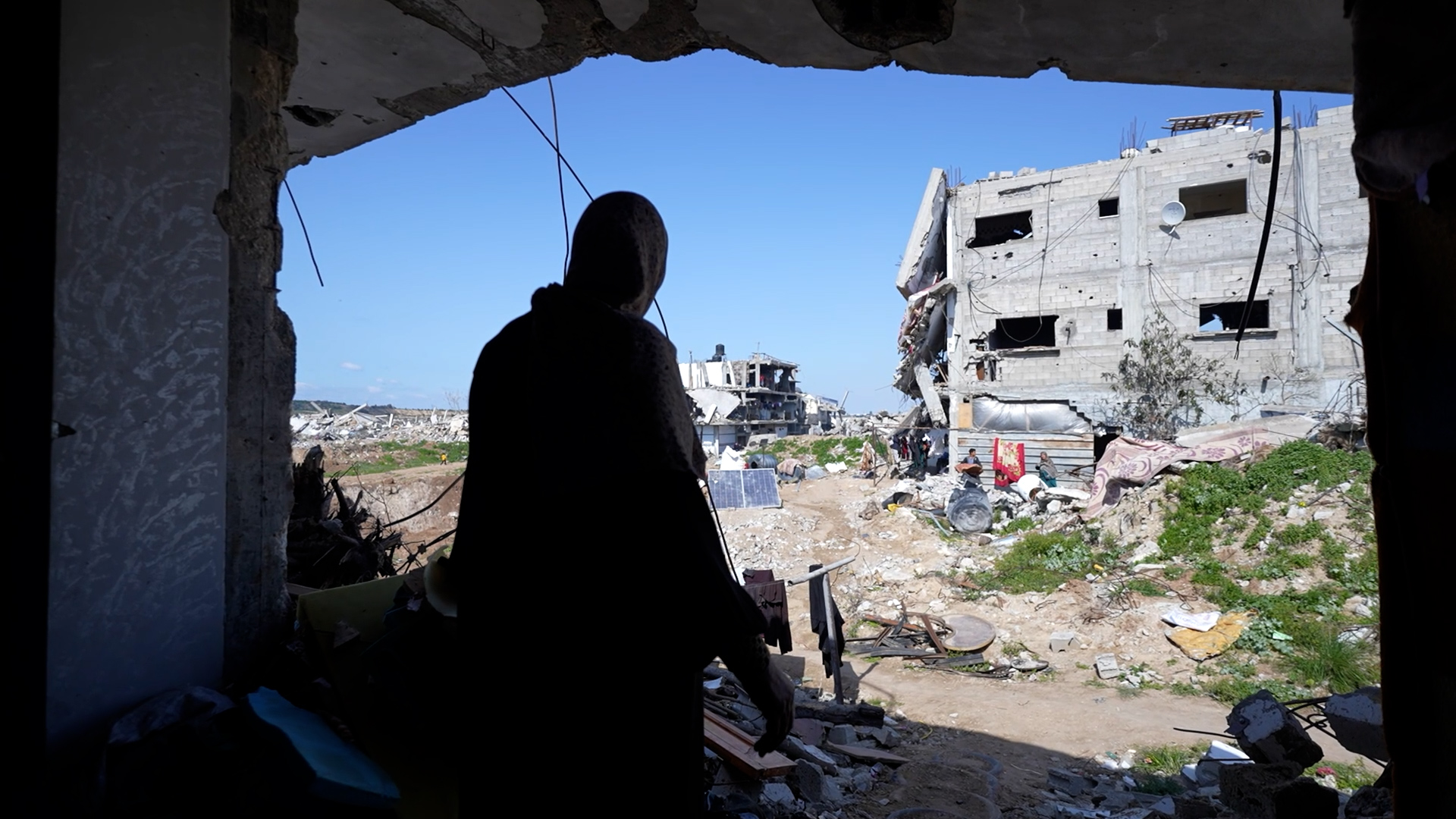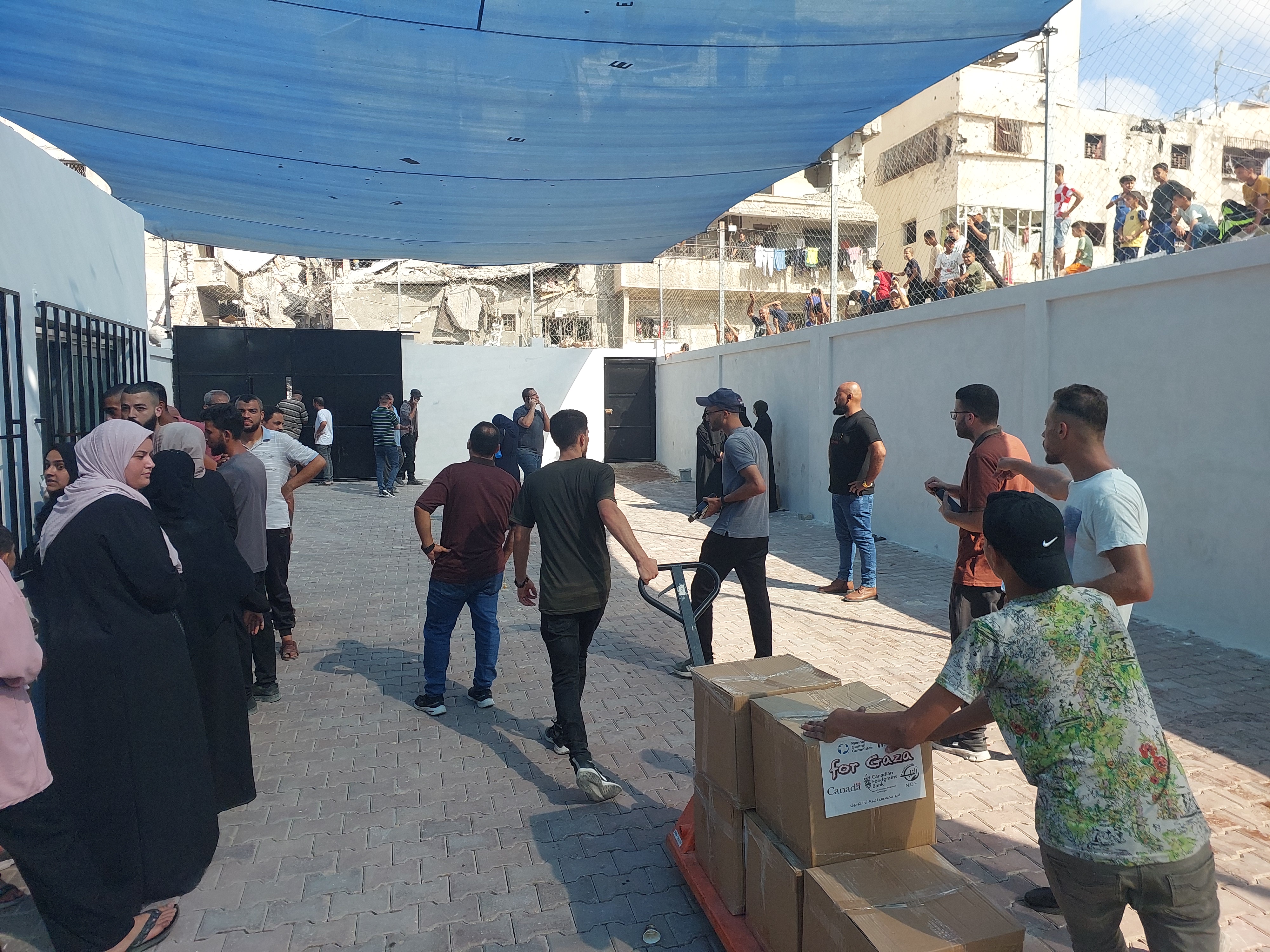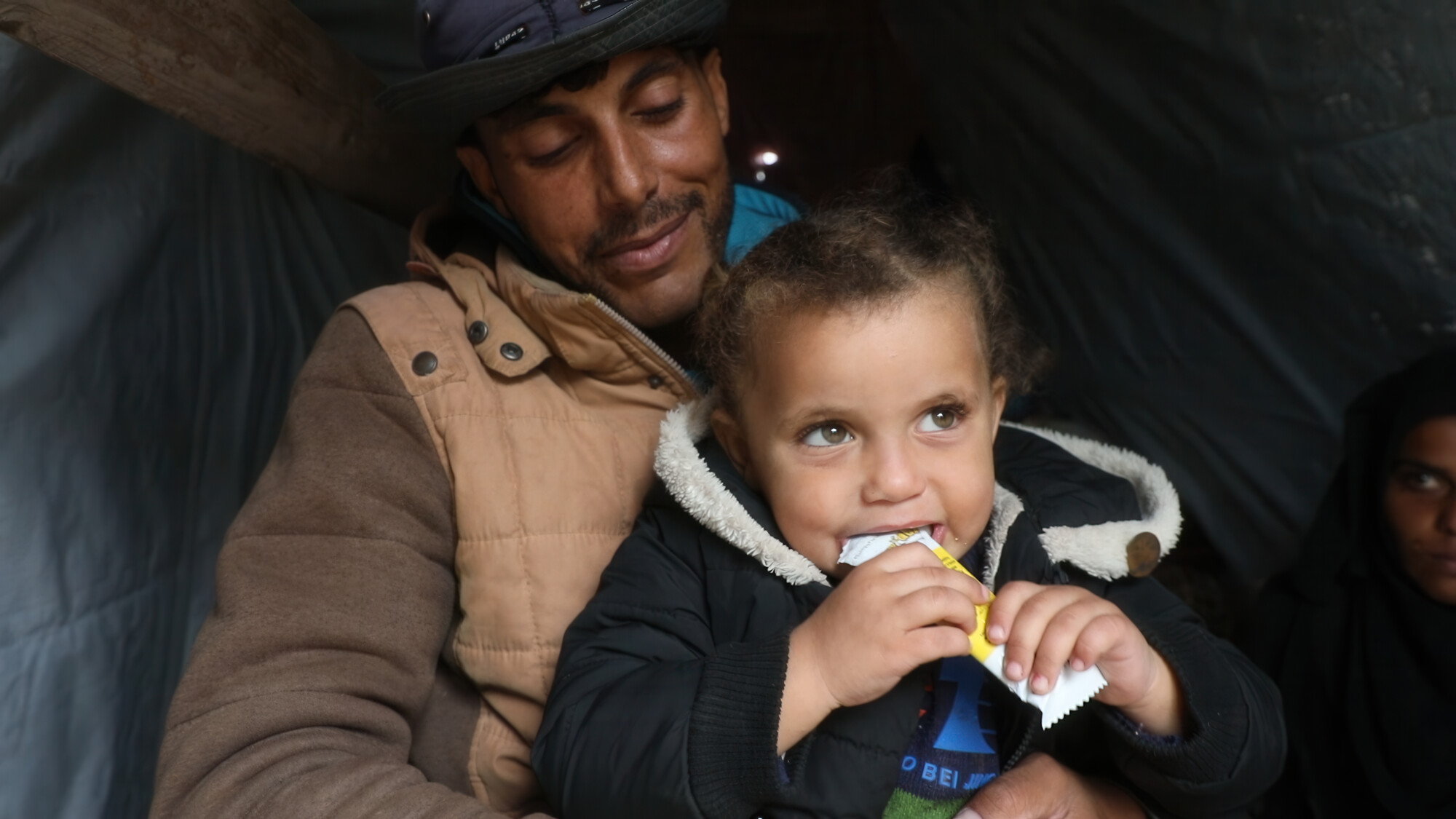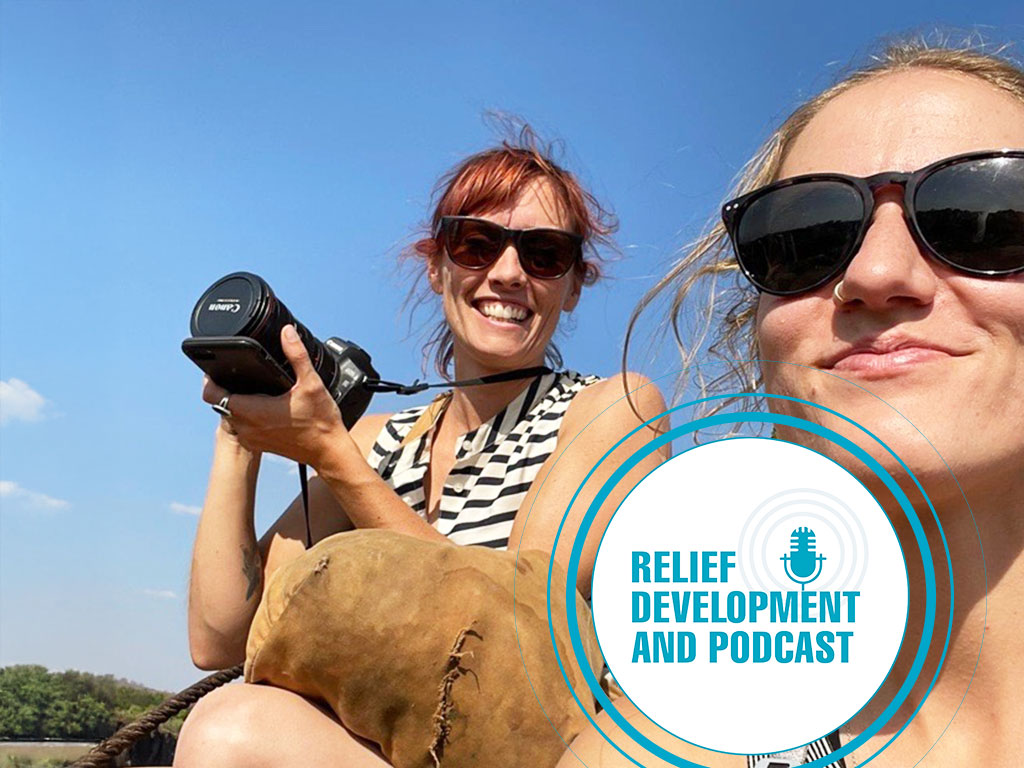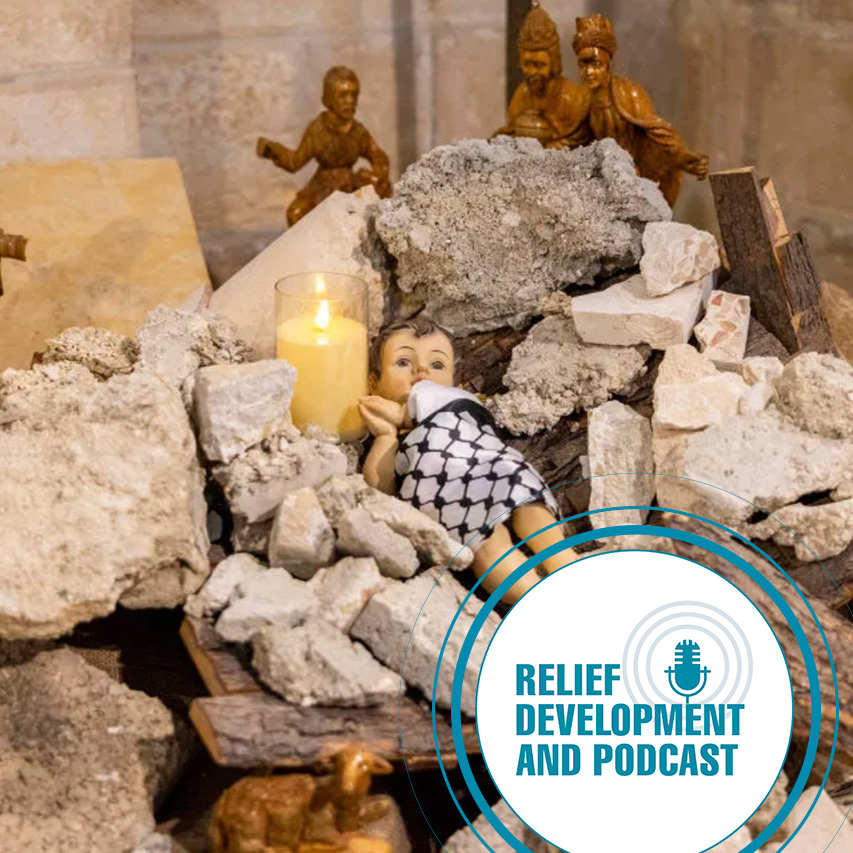‘We want the world to stand with us and stop the war’
Stories from women in Gaza: two women describe what life is like for their families
Islam Jameel Ali Al-Mufti and Andaleeb Abu Al Qumbuz are both mothers of six children in Gaza. They both have been displaced multiple times in the last year and are still living in tents. Below they describe what it has been like to live through the Israeli military’s ongoing assault in Gaza, which began last October. Both women also have had their houses destroyed multiple times by previous Israeli attacks.
Read Al-Mufti’s and Al Qumbuz’s first-person accounts as told to a videographer based in Gaza, who was hired by MCC:
Islam Jameel Ali Al-Mufti
“My name is Islam Jameel Ali Al-Mufti. I live in Gaza, and I am 40 years old. My husband and I have five sons and a daughter, Jude, who should be in first grade. The oldest is 19. We lived in the center of Beit Lahia for almost 22 years.”
On being displaced nine times
“There were shots fired that Saturday. We didn’t expect that it would be a war. So, we left our homes thinking it’s going to be a couple days, and then we would go back to our home. I did not take anything except one change of clothes.
We stayed at the Abu Asim school for almost a month and a half. They (Israeli soldiers) raided and shot at the school, so we went to Al-Shifa Hospital. We have been displaced nine times since the day the war started.”
Daily life under siege
“I wake up in the morning. I send my daughter or son to find some paper to use for making a fire to cook. And then we wait for our turn for the water at the well. We can wait for two, three, four, five, seven hours until we can fill one or two water bags. Sometimes we can’t get water.
The price of everything is expensive. The bottle of soap used to be half a shekel; now they sell it for 5 shekels. A bottle of shampoo went from 10 shekels to 120 shekels (US $2.70 - $32.36). We can’t keep up.
Al-Najd Developmental Forum (an MCC partner) gave us a food parcel. It had important things in it like cereal, rice, lentils, bulgur, oil, canned tomatoes. They provided important things that we can’t buy. I mean, by God, it was like an oil that soothed our wounds. It provided food for 15 days.”
What about your children?
“I can barely cope with seeing their fear when they see an airplane flying above them. We’ll be sitting and suddenly we hear a rocket exploding, and then my daughter screams and cries. I hug her and say, “They are far away from us.” But the explosions are very close.”
“Yesterday she was asking me, “If a rocket hit, who is going to collect my body?” I didn’t know what to answer.
I have a son, Muhammad. He was in his second year of high school. When Muhammad got a 99%, he would be sad and go to his room and cry. He was a high achiever. Soon after the war started, he saw the tanks at Al-Shifa and saw how the soldiers took over the streets. He was so frightened that they would come near us.
Muhammad couldn’t recognize us because he was traumatized. Now, just recently Muhammad started to recognize who his mother and father and his brothers are. I want him back. I want support for Muhammad, someone who can treat him. I want Muhammad to get back to his old self.
We want the world to stand with us and stop the war. That’s what we want and to put mercy in their hearts. They need to stop the war for the sake of the young children.”
House damaged again
“This time is the third time our house was damaged by Israeli assaults. My bedroom and my furniture were burned by a shell hitting them. The first time, an aid agency helped us restore it, and the second time Al-Najd (with MCC support) helped. This was when my oldest boys were young.
They installed doors, windows and did a complete restoration for everything in the house – three rooms, a bathroom, a kitchen and a living room. I was very happy and I prayed for the (organizers) of the project. May God protect them.
Oh Lord, may He have mercy and restore my house one more time.
All we want is to return to our home. Even if we put up a tent in the middle of our house that has been torn down. It is better than nothing because our lives have been through a lot of destruction. Everyone wants to go back to school, buy their things, walk on the streets and move about to get the things they need. We only want the war to be over.”
Andaleeb Abu Al Qumbuz
“My name is Andaleeb Abu Al Qumbuz. I’m 59 years old. I have six children, three daughters and three sons. Two of them are disabled. My youngest daughter would be in 10th grade. We are residents of Gaza, and we lived on the eastern border since 1994.”
Life under siege: before and after
“Oh, the first days of the war were very tragic. We lived next to a border area, a sensitive area, so from the beginning of the war we could not stay there. Everyone only took one set of clothes. We didn’t take anything to sleep on, no blankets, no fuel, or anything. We just left.
We must buy everything — and we have no income. We must buy at high prices, which means that we are living a very primitive life, a life that doesn’t look in any way like our lives before.
Before our house was destroyed (in this war), it was in the middle of a garden. We used to call it the green island, and life was good. There were not many people around it, and I tell you, truly, we were all happy.
Our house was equipped with air conditioning. My son Amjad and my daughter (both who are disabled) each had a bathroom that was accessible. They had their own rooms.
Now we are all living in a tent."
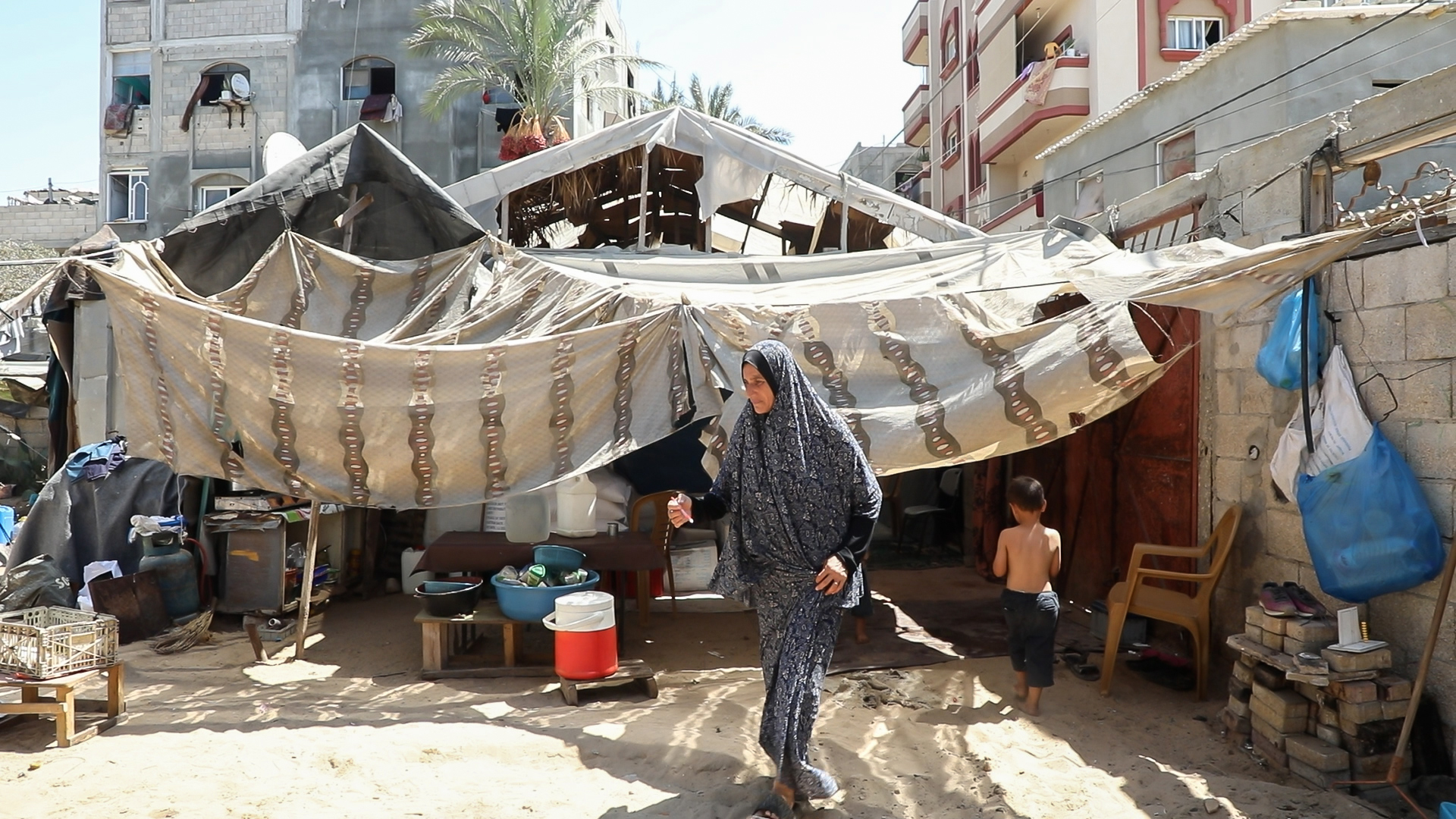
"This is the most difficult thing — I mean, you start all over again. I am 59 years old, and I am washing my clothes by hand. The water is not suitable, it’s very salty. We are baking our food in mud ovens. We can’t find cooking pots or things to bake with.
I am suffering from displacement. Three times, no four times, from the day we left our house, we keep moving from place to place. You want to sit for a while until your psyche adapts – that’s if you adapt.”
My children seem to be 100 years old
“Now I feel that even my children have lost their hopes. I feel that my children have aged, and now they seem to be 100 years old. Now their biggest wish is to go fetch wood or fill water. “Mama, there’s water here.” Or “Give me your phone to charge.” These are their aspirations. This is tragic.
My daughter Shaima is 37. During high school, she was moving around everywhere, normally. Suddenly she started to complain, 'My hand, my leg.' We took her to Egypt, and we treated her, but until now it is not known what is causing her paralysis.”
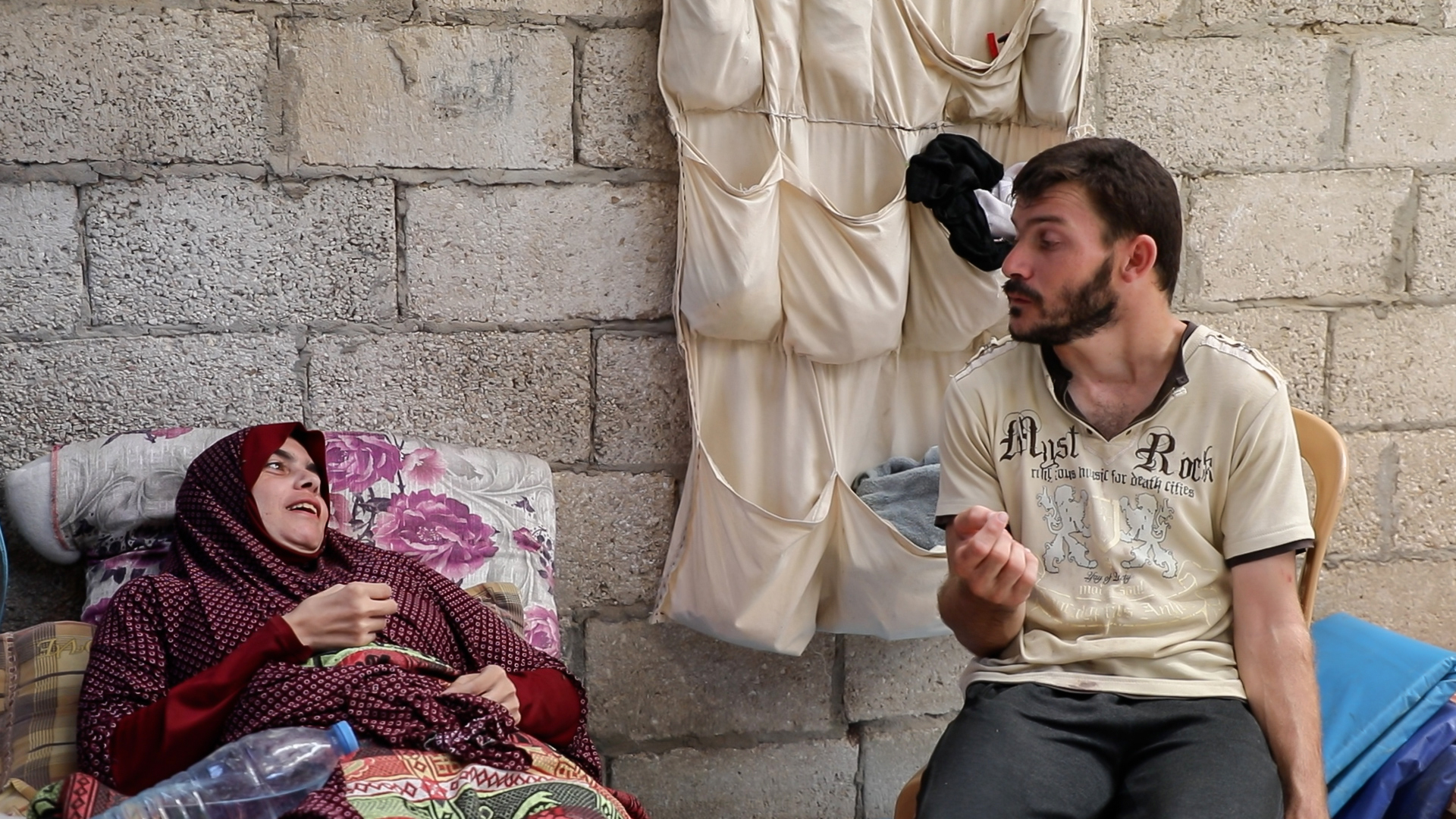
“From the day the war started, she hasn’t taken her medication. When I change her, I must ask everyone to leave (the tent), so I don’t expose her privacy to anyone. She doesn’t get her treatment or physiotherapy. By God, her wheelchair is broken. We must carry her everywhere. I implored the whole world, and no one came out to help. This is the hardest part I’m suffering from.
My wish is for my kids to be comfortable. For me, that is all I need. My comfort stems out of my children’s comfort. I want my children to be happy.”
Life before the war: raising rabbits
“Before the war, we were able to support Shaima because of a rabbit-rearing project from Al-Najd. We started with one cage of rabbits. We developed the project and the area for it as well. After that we had almost 20 cages, and it was amazing. It was a continuous success for three years.
Everyone benefitted from it, really, and honestly, Shaima got so much out of it. Even Amjad, with his disability, was the one in charge of cleaning. He was the one who was watering. It was the primary source of income for the whole family.
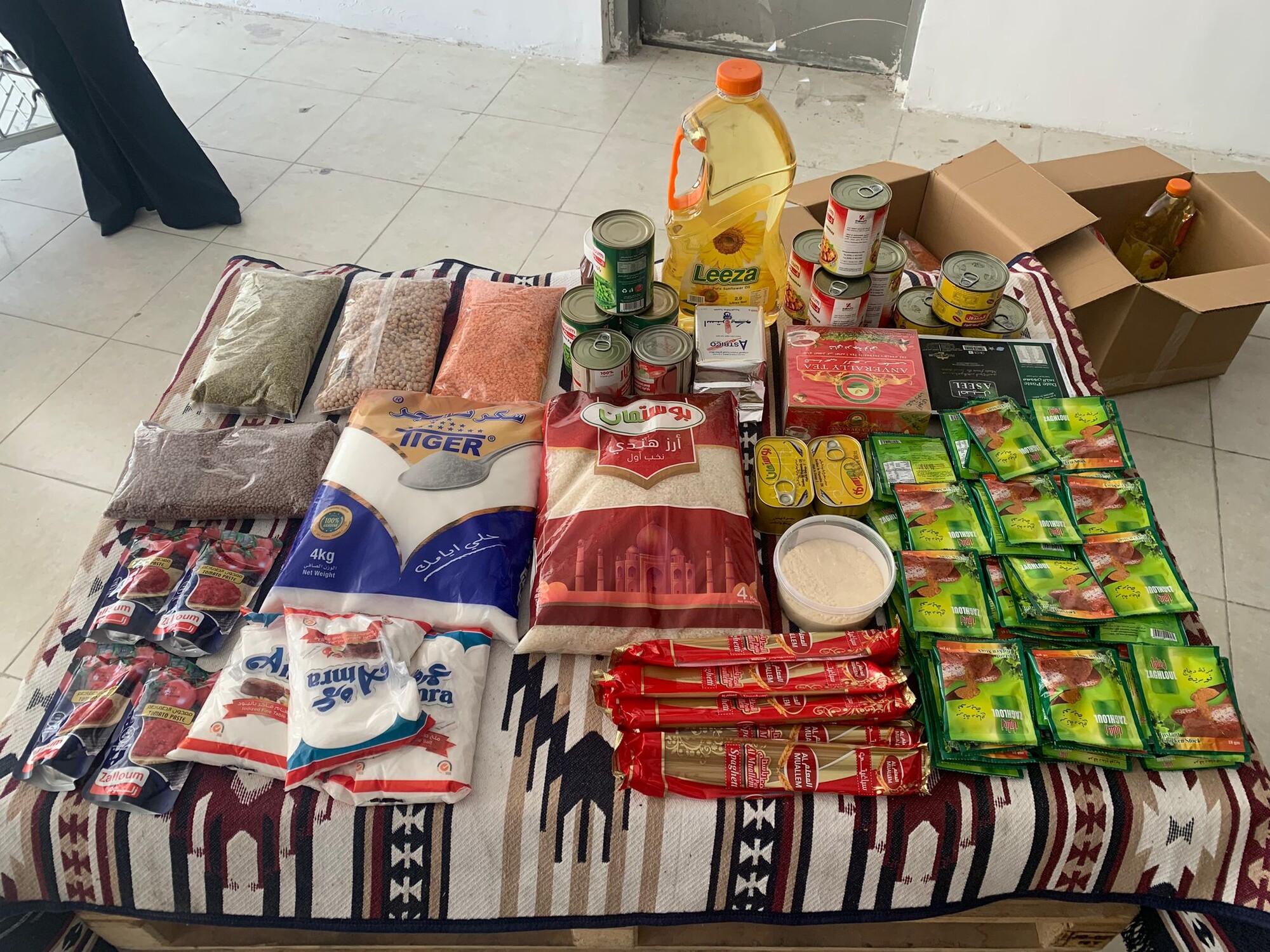
“Now we depend on charity. Al-Najd gave us a food parcel, enough for three weeks or a month. There were things we didn’t have since the war began that were in the parcel. We cooked, for example, beans. We found sugar in the parcel. We found semolina. We couldn’t buy those items. Cans of corn and nice things for the children. Yes, may God bless them.”
We want to go home; it's enough bloodshed
“People and children, their lives are destroyed. Innocent people have died, under the pretext that they [the Israeli government] want to eliminate terrorism. Terrorism? In the last raid, my niece died with her husband, children and her mother-in-law. All these people died, 16 people died, and by God, they were not guilty of anything. What crime did they die for?
We never have seen such destruction, ever in our lives. Yes, there was war and destruction, but not like this one. It is enough. Enough death, enough bloodshed.
In the war of 2008, the house was destroyed, and we built it again. It was one floor. Then the children were getting older, and we wanted to make the house bigger, so we borrowed extra money to build it and make it three floors.
In 2013 we lived in it and in 2014 it was demolished. We stayed in it for one year, and we still owe on the loan. The house was gone. Then we built it again in 2016-2017, and we moved in 2019 and lived there for three years, but now it is gone again.
But we want to return. We want to rebuild. We want to stay in our homes, we want to settle. Even if we go back and live in a tent, we are satisfied. We want to return to our place and build our lives from the beginning anew.”
Context
Israel’s bombardment followed an attack by Hamas that killed 1,100 people in Israel and took 251 captives on Oct. 7, 2023. The Israeli military’s response has killed at least 41,000 people, and 90% of Gazans have been displaced, multiple times over. More than 60% of schools, commercial buildings, houses and hospitals have been damaged or destroyed.
Al-Najd hoped to do repeat distributions of food parcels but has been forced to do single distributions because of difficulty getting supplies into specific places in Gaza. Palestinians in Gaza continue to face severe food insecurity and famine. MCC, like other organizations, has struggled to deliver humanitarian assistance because the government of Israel is deliberately obstructing aid from entering Gaza.
Read MCC's statement on Gaza published on Sept. 23, 2024, from Executive Directors Ann Graber Hershberger (U.S.) and Rick Cober Bauman (Canada).
Give to MCC's Gaza crisis response
Your donation makes a difference.





